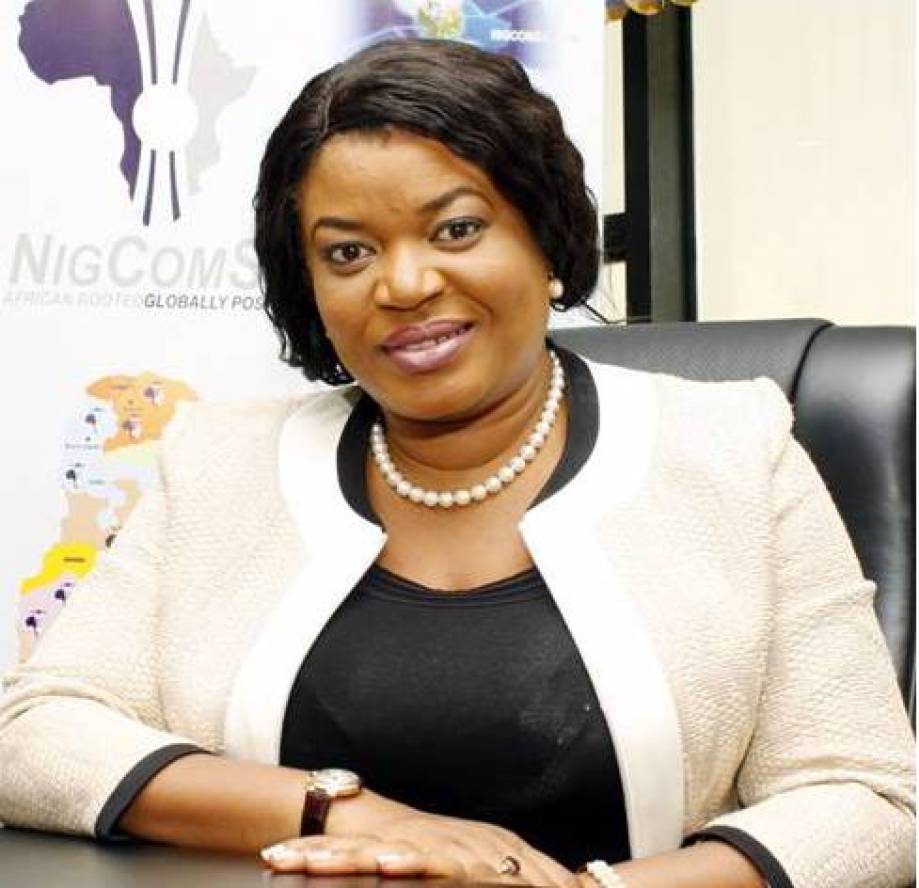The motive behind the extension of service for Ms. Abimbola Alale in 2019 as the Managing Director and Chief Executive Officer of NIGCOMSAT for another 4-year term may be gradually unfolding.
As it is now obvious that though she is the only African on the board of Space Generation Advisory Council, when it comes to the financial affairs of NIGCOMSAT; a satellite communications service provider wholly owned by the Federal Government of Nigeria and incorporated on April 4, 2006, she does not fly solo.
Investigations revealed that between September and December 2011, Ms. Alale in connivance with the immediate-past managing director of NIGCOMSAT, Engr. Ahmed Rufai and one Alma Okpalefe Udoyen without a Certificate of No Objection from the Bureau of Public Procurement and no approval from the Federal Executive Council since the service was a non-consultant service contract, paid the sum of N5,893,920,000 (five billion, eight hundred and ninety-three million, nine hundred and twenty thousand Naira) as an insurance premium for the launch of NigComSat-1R satellite to Fasaha Intercontinental Insurance Brokers Ltd, with an office at Block C3 Amsalco Plaza, No 100 Zoo Road Kano.
As the project director for NIGCOMSAT 1R we learned, Ms. Alale also allegedly facilitated payment up to the tune of N3,082,742,400 (three billion eighty-two million, seven hundred and forty-two thousand four hundred Naira) for non-existent and fictitious insurance policies, amongst which was a N1,475,680,000 (one billion, four hundred and seventy-five million, six hundred and eighty thousand Naira) payment as premium for an Early Launch Orbit insurance with no certificate issued. China Great Wall Industries Corp. (CGWIC), the satellite manufacturers, however, did not indicate Early Launch Orbit Insurance as part of the insurance cover for the satellite.
Despite the contract document of NIGCOMSAT 1R satellite between Nigerian Communications Satellite Limited (NIGCOMSAT) and China Great Wall Industries Corp. (CGWIC) stating that the transit insurance of the NIGCOMSAT-1R satellite from the factory in Beijing to the launch site at Xichang was the responsibility of CGWIC, another payment of N1,607,062,400 (one billion, six hundred and seven million, sixty-two thousand, four hundred Naira) was allegedly made with no insurance policy or certificate to authenticate the transaction.
Obviously running the agency with an open check, the sum of N1,475, 680,000 (one billion four hundred and seventy-five thousand six hundred and eighty thousand) was subsequently paid for NIGCOMSAT 1R Launch Insurance while the sum of N1,335,497,600 (one billion three hundred and thirty-five thousand four hundred and ninety-seven thousand and six hundred Naira) was paid for NIGCOMSAT 1R In-Orbit Insurance valid for two years from 2011 to 2013.
However, on 21st December 2012, while the subsisting in-orbit insurance was still valid, the astronomical thieves having developed a conduit pipe through which they siphon taxpayer’s money again paid the sum of N421,885,364.63 (four hundred and twenty-one million, eight hundred and eighty-five thousand, three hundred and sixty-four Naira, sixty-three kobo) to Fasaha Intercontinental Insurance Brokers Ltd for the renewal of the in-orbit insurance policy for 19 December 2012 to 19 December 2013.
Just like other fictitious deals, we gathered that the payment was approved by the in-house tender management board fully aware that the said in-orbit insurance not renewable as it is traditionally a one-time payment.
While the copy of the insurance policy did not state the premium, no FEC approval or BPP Certificate of No-Objection was obtained for the procurement which remarkably, was not signed by either party, with no insurance certificate from the local and foreign insurers. Further diggings showed that not only was the act fraudulent, but the amount approved for the project was also above the threshold of the company’s tenders board as set out by BPP in the approved revised threshold for the award of contracts, thus contravenes section 16 (I) (2) of the Public Procurement Act, 2007.
















